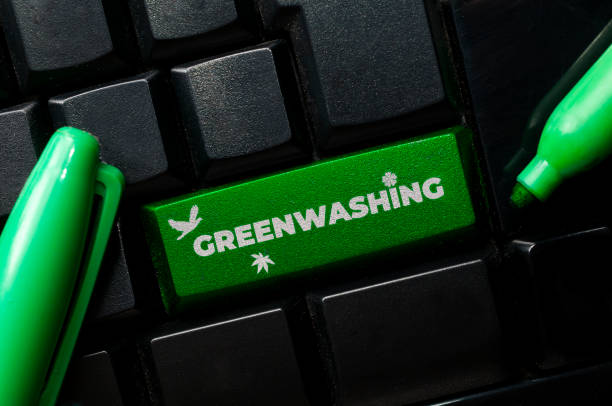Over the past few years, an increased number of individuals have decided to invest, buy, and use environmentally friendly and sustainable products. Funders and businesses are seeking to embrace – or be seen as embracing – the sustainability agenda in a big way.
This is all broadly positive on the surface. But as companies and funders clamber to demonstrate their commitments to people and the planet, the markets have been awash with questions over the legitimacy of sustainability claims and accusations of ‘greenwashing’.
So, what is greenwashing?
Greenwashing is where an organisation conveys a false impression of its environmental credentials or provides misleading information to create an environmentally responsible image. This could be through mislabelling products, shouting about green credentials without third-party verification or even exaggerating the environmental work they have done.
When looking at environmental commitments, it is clear that they have been used as a marketing tool by some players. There have been a series of high-profile scandals, most notably regulatory probes which have investigated fund firms over whether they misled clients about their sustainable investing efforts. And due to this, more scrutiny is being placed on investors and companies, which is a welcome development.
While environmental, social and governance (ESG) and sustainability reporting should be part of the cure to greenwashing, it has too often been seen as an enabler, if not the cause.
Greenwashing from the public perspective
According to a YouGov poll last year, 57% of UK consumers were willing to pay more for environmentally friendly products. And, now fuelled by stakeholder activism and empowered by social media, the general public is even more alert to greenwashing, and won’t stand for it.
What’s more, every business runs the risk of greenwashing, especially big businesses that are constantly in the public domain; they need to clearly demonstrate the credibility of any sustainability or net zero claims they make.
This sentiment has been shaped by recent accusations against the likes of Innocent, McDonald’s, Coca Cola and now KLM. Each of these cases included green claims about products and services which came with little evidence, or the organisations are alleged to have misled their target audience through their messaging. Even the UK Government’s own net zero strategies have been ruled unlawful as they are too vague.
And greenwashing doesn’t just relate to how companies or governments attempt to shape public perception. It is a significant risk in the way they disclose information and communicate with another key set of stakeholders: their investors.
Looking at greenwashing from an investor’s view
A recent study shows that over 60% of investors would pull out of a fund that was not living up to its own sustainability credentials. The study also went on to find that the respondents’ expectations were mismatched with what they observed in many sustainable funds. What this tells us is that investors will not be fooled by greenwashing.
But of course, greenwashing isn’t only about corporations. It’s arguably more prevalent among the investors themselves.
An event that sent a strong message about the repercussions of greenwashing was when German officials raided Deutsche Bank’s DWS over ‘greenwashing’ claims. This was after a whistle-blower alleged that DWS sold investments as “greener” or “more sustainable” than they were.
According to an FT article, some industry insiders believe many investment firms are on the brink of a mis-selling scandal. They believe the scandal could be like the ones we have previously seen e.g., payment protection insurances, mortgages, and diesel cars. It would not only cause trust issues, but will negatively affect the number of people looking to complete green investments in the future. So, companies need to act now and ensure all green claims are backed up by evidence.
A crucial part of the greenwashing debate centres around ESG rating agencies, particularly in cases where oil and gas companies appear to be given higher ESG scores than those rooted in sustainable energy or renewables. But with ESG rating agencies taking on more precedence, further scrutiny seems to be on the horizon amid calls for ratings to be viewed as opinions.
All of the above has contributed to the credibility questions we are seeing around ESG, and an ESG backlash from some mainstream commentators. A special feature by The Economist, about the future of ESG, is the latest high-profile publication to provide a deeper dive into questions and concerns around ESG’s credibility, stating: “The ESG approach to investment is broken. It needs to be streamlined and stripped of sanctimoniousness.”However, Hugh Wheelan’s response to this special feature is very much in defence of ESG, and a useful counter argument.
The built environment and greenwashing
A recent article in the Architects’ Journal, entitled “Architecture is drowning in greenwash”, said greenwashing is everywhere you look in the UK built environment sector and that there is pressure on organisations to get positive coverage and engagement.
Some businesses across housing and real estate inadvertently or otherwise talk up ‘positive environmental impact’ without mentioning that the built environment contributes to 40% of all carbon emissions. There have also been suggestions of soft targets on green finance deals and developers claiming 100% net zero schemes when they’re not.
However, with all these issues arising, industry leaders are coming together to create standards for their sectors to improve transparency and increase green and social claim credibility. One example is the Sustainability Reporting Standard for Social Housing. There are also other mission-driven organisations like GRESB and UKGBC, working on frameworks to help ensure ESG credibility. GRESB provides validated ESG performance data and peer benchmarks for organisations to improve business intelligence, industry engagement and decision-making. And, UKGBC is working to improve the sustainability of the built environment by transforming the way it is planned, designed, constructed, maintained, and operated.
What is the government doing to clamp down on greenwashing?
The UK government is attempting to cut out greenwashing via legislation. The UK became the first G20 country to require companies to disclose ESG information in line with the Taskforce on Climate-related Financial Disclosures (TCFD). The changes mean that more than 1,300 of the largest UK-registered companies and financial institutions must disclose climate-related financial information on a mandatory basis. Another is the UK’s Sustainability Disclosure Requirements (SDRs)- the UK’s answer to the EU’s Sustainable Finance Disclosure Regulation (SFDR) – which intends to create an integrated and streamlined framework that brings together sustainability-related reporting requirements under one roof for corporations and financial institutions.
SFDR was designed to weave out sustainability claims that were false; it works as the framework requires firms to classify their investment products under one of three categories:
> Article 6 – addresses ESG risks
> Article 8 – promotes ESG characteristics
> Article 9 – sets measurable ESG “objectives.”
Some suggest Article 8 has the vaguest criteria of the three articles, so it has become a go-to categories for fund managers. Morningstar data reveals that asset managers have reclassified over 600 funds previously listed as Article 6 to Article 8. A number of Article 9 funds were also downgraded to Article 8.
Linking into these here in the UK are the UK Green Taxonomy, Sustainable investment labelling regime, UK Stewardship Code, as well as the many international regulations around taskforce disclosure and efforts to consolidate and merge ESG frameworks.
Most have strengths and weaknesses, but all are aimed at helping tackle ‘greenwashing’, improving understanding of environmental impact, helping organisations make informed green choices, supporting investment in sustainable projects and boosting efforts to tackle climate change.
Also, The Financial Conduct Authority has expressed its support for the regulation of ESG data and rating agencies after consulting the industry, which will also help to crack down on green and impact washing.
On the consumer side, the Competitions & Markets Authority (CMA) recently launched the new Green Claims Code. This aims to help clamp down on vague claims and unclear language, non-accredited brand-owned eco logos, and information that has been omitted to make products look greener. This also means that these consumers (and investors) need to be protected, and this new code can help flush out companies greenwashing their products and services. This scrutiny also gives the public more power to hold businesses accountable for their deceitful actions.
Membership body UKSIF, which advocates sustainable and responsible finance in the UK, aims to raise awareness via Good Money Week, which looks to help people find sustainable and ethical options for banking, pensions, savings and investments.
To conclude…
Done well, ESG pushes businesses and funders into commitments and standards against which they can be held accountable. As greenwashing scrutiny continues, it should help ESG’s own evolution towards a more robust, impactful, and comprehensive tool to promote transparency and accountability.
With this being said, there is a natural scepticism from some about the credibility of ESG and sustainability reporting. Hence, now is the time for businesses to drive evidence-based approaches that enable them to tell their ESG stories to the wider public; highlighting real-life examples of sustainable outcomes and showing how it is changing organisational behaviours and decision-making in boardrooms. While credible communications have a vital role to play, robust data, transparency and comparability must be at the heart of ESG.
As ESG and sustainability reporting move further into the mainstream, the debate around credibility and effectiveness will continue. Alongside this, more and more businesses will face much-needed scrutiny to demonstrate their commitments to their consumers and their investors. We hope businesses and investors alike welcome such scrutiny with open arms.
Social Invest is a specialist communications consultancy supporting investors and businesses within placemaking and built environments to tell their story around ESG, socially responsible investment and purpose-driven finance.
Nishall Garala is an Account Manager at Social Invest and a community champion within Harlow, Essex. He has been volunteering in his local community since the age of thirteen, first starting off as an elected Youth Councillor. He currently leads a campaign called #BigUpHarlow, which promotes the town’s greatness. In addition to this, he’s a Trustee for a local charity and President of the local Hindu Society; he also holds other community roles.



